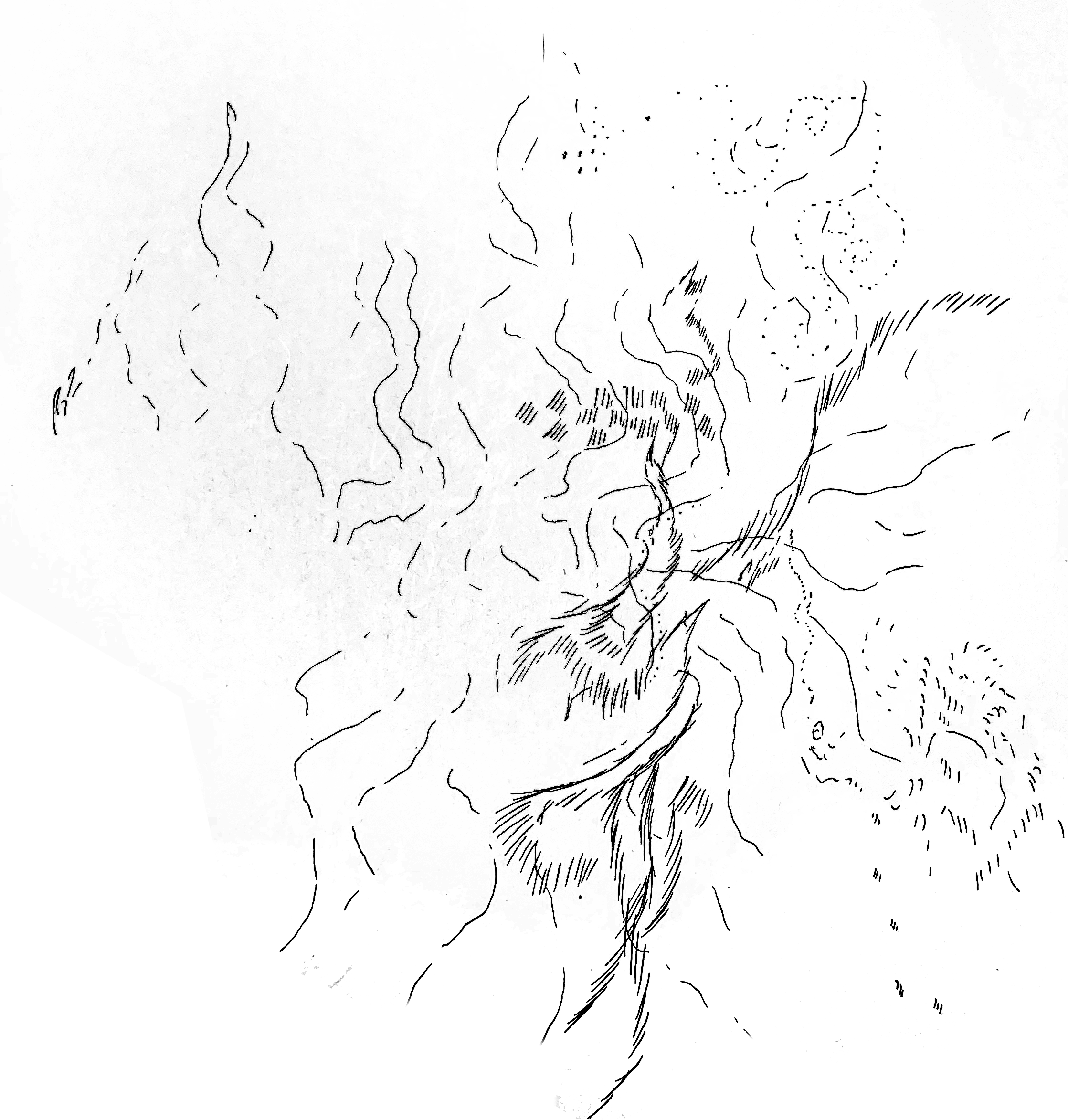Poetic web: unfolding spiral
Outro

It almost feels like I come over the same point where I have been in the beginning, though I know it is not really the same. The journey unfolds like a spiral, taking a new turn; I sense a slight shift in the backdrop from a mystic plasma to a moss-green hue. This transition signals to me the beginning of a new chapter, which, for me, always starts with the creation of a new are.na channel.
Rather than entangling words even more, I have devoted my time and energy to untangling some of them in order to re-entangle them again. Through intersectional relations, I begin to see the meaning unfold.
I set out to write about poetic web, which turned out to be anything but straightforward. Without really knowing what it means to be honest with myself, I nevertheless wanted to be honest with myself and tried to write things I meant the way I meant them, even if on a short run it resulted in being perceived as ambiguous and unprofessional. Although grammar still scares me, I've made friends with a few words.
It is indeed difficult to look at language from the perspective of being trapped within it. However, the more I read the words of the sources and the more I was able to observe my own process of meaning-making, the more I became aware that language wasn't just that.
The language of logic would often make me feel wrong about having a body with feelings. Situating a language within the space of poetic web allowed me to breathe, it allowed me to search, to recognize, and to build relations. By not disregarding the ways in which I operate (breathing, feeling, dreaming, doubting, do-ing, re-do-ing, observing...) as invalid to my process, I began to feel that I was no longer trapped within the language.
This slight shift in relation gave me the perspective to re-discover the language. I came to appreciate how language can bring the unconscious into consciousness. To be able to approach ways of operating-with language from different perspectives can uncover new ways of worldling. The magic of words is their ability to create new worlds. When readers engage with words, they not only experience created worlds but also awaken new worlds within themselves, weaving intersecting webs of fluid worlds. While we may never fully experience another's wor(l)ds exact same way they do, which from a logical standpoint could be rendered as problematic, placing this issue within the space of poetry can be transforming. You might as well see it as a great gift, of things overlapping but never really being the same, where the small differences have the energy of the wind or river creating the movement.
Seeing poetic web as a practice of worldling and language being great part of it, it felt crucial to observe the ways in which we operate when dealing with words, before moving on. As Haraway puts it:
it matters what knots knot knots, what thoughts think thoughts, what descriptions describe descriptions,
what ties tie ties.
Staying with the Trouble
I began to feel that my interest in the poetic web and its artifacts on a broad scale was deeply connected to curiosity about the ways of worldling and its micro-details. It is something that Michel De Certeau described as "silent production", not the material of artifacts, but the forms and practices with which they are intertwined in our worlds, and the potential energy that artifacts store within them.
Poetic web is not just an object of this text, but rather a space that makes this text possible. I didn't intend to provide a universal definition from the outset, but I hope I've piqued your curiosity and invited you to find out what poetic web already is, or could become, for you.
As I leave this text to further shape within me and within the reader, I am drawn to think in more detail about the wor(l)ds of poetic web and its artifacts and the stories or practices intertwined with them. What potentiality do they hold? What worlds do they conjure? What is missing?
To think about design demands an archaeological
approach. You have to dig.
are we human?
https://www.are.na/block/26884251
Which means I will write this text again.